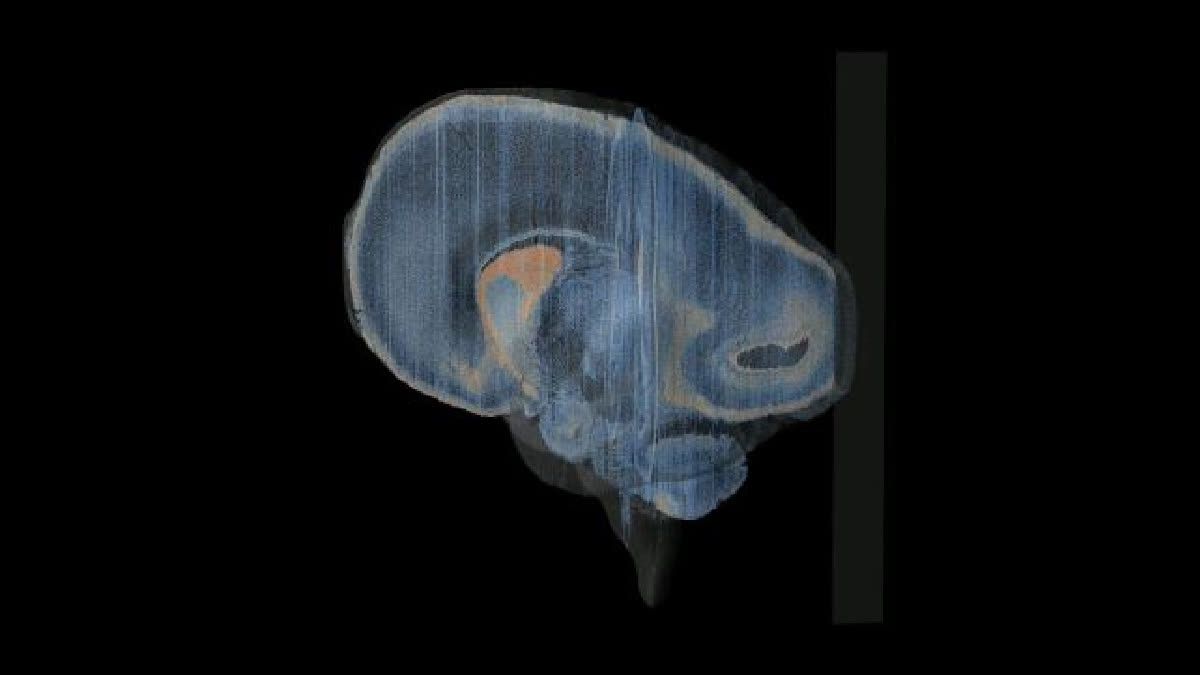IIT-Madras Breaks Ground with World's First 3D Images of Human Foetal Brain

Chennai: The Indian Institute of Technology (IIT)-Madras has made a groundbreaking achievement by releasing the world's first high-resolution detailed 3D images of the human foetal brain, catapulting India to the forefront in brain mapping technology. This pioneering work, titled "DHARANI," is an open-source dataset that provides researchers worldwide with unprecedented access to data on fetal brain development.
In a revolutionary leap forward, IIT-Madras has successfully captured 5,132 brain sections digitally using cutting-edge technology developed by the Sudha Gopalakrishnan Brain Centre. This achievement promises to advance our understanding of neuroscience and potentially unlock novel treatments for brain-related health conditions.
Led by Mohanasankar Sivaprakasam, head of the Sudha Gopalakrishnan Brain Centre, this trailblazing research project involved collaboration between IIT-Madras and Savita Medical College and Hospital. Over the past two years, more than 200 brain samples from various medical institutions across the country were collected and converted into three-dimensional images using a high-performance imaging platform.
The primary objective of this groundbreaking study was to identify the shape and functions of the human brain during fetal development. This ambitious endeavor aims to equip researchers with accurate 3D images to detect potential damage in the human brain, paving the way for early detection and prevention strategies.
This monumental research project comes with an impressive price tag of $15 million (approximately Rs 115 crore). When questioned about this significant expense, Kamakoti, IIT-Madras director, succinctly stated that "No one has truly understood the complexities of the human brain."
The editor of the American journal Journal of Comparative Neurology, Susana Herculano, has praised the work, welcoming the groundbreaking findings into their journal. As researchers around the globe eagerly await access to this precious dataset, IIT-Madras takes a significant leap forward in solidifying its position as a leader in neuroscience research and cutting-edge brain mapping technology.
This trailblazing achievement showcases India's growing presence in the international scientific community and underscores the country's commitment to pushing the boundaries of human knowledge.
